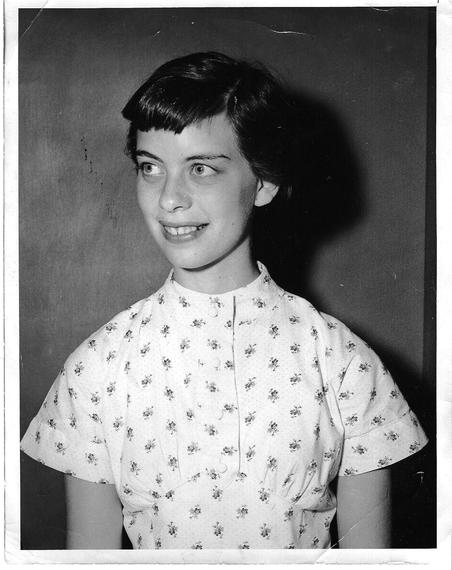On a spring morning of 1954, nearing the end of my sophomore year of high school, I sat down to take a very difficult exam. I had agreed to take the exam at the suggestion of my school guidance counselor, who had approached my parents and told them about an experimental program sponsored by the Ford Foundation -- they were taking bright students out of tenth and eleventh grade and plunking them into college. He thought it would be a good experience for me just to take the test.
Needless to say, I walked into that exam cold. No test prep. Make no mistake; I found it very difficult. I remember repeatedly reading three paragraphs on economics and trade that I twisted my brain to comprehend and guessed at my multiple choice selections. I had very little prior knowledge about much of what was asked of me. I walked out thinking I had not done well. However, nothing ventured, nothing gained. I shrugged and didn't spend much time dwelling on it. I had no fear of tests because through most of my educational experience I had not taken very many.
My elementary education, from kindergarten through sixth grade was at the Little Red School House, a private, progressive school in Greenwich Village. I LOVED school. I received no grades, can remember taking quizzes now and then but no major exams. Learning was experiential as much as possible -- we hunted arrowheads in Inwood Park, ate tacos (my first!) at a local Mexican restaurant, ground corn between stones, made soap and candles and made puppets and put on puppet shows. We read books, wrote poetry and did independent art projects. We also sang a lot.
In seventh grade my family moved to the suburbs and I went to public school where I received grades for the first time. I loved it because my grades were high. But my father was unimpressed. He didn't see me doing much work. So the stakes were very low for me when I sat down to do my best on what is now known as a college entrance exam.
To my surprise I was accepted by the Universities of Chicago and Wisconsin, Shimer College and Goucher College, four of the 12 institutions of higher learning involved in the Ford Foundation experiment. Now I had to make a decision. When I weighed what I might learn during the upcoming two years of high school against the possibilities offered by college, I decided to go. (I found high school boring.) So in September of 1954, two weeks after my 16th birthday I entered the University of Wisconsin, 1000 miles from home, as a Ford Foundation Early Admissions Scholar. By today's standards I had been deemed "college and career ready." 
This is the picture of me from the local newspaper article announcing my scholarship. Do I look ready for the big time? By the way, I made the dress I was wearing thanks to my home economics class. In my upper junior year, I transferred to Barnard College, near home and graduated on time in 1958.
Obviously I did ok. But with today's brouhaha about high-stakes testing, I was curious about the outcome of the Ford Foundation Early Admissions program that lasted from 1951 to 1955. (I was in the penultimate group admitted). A little online research brought me to this study: They Went to College Early. There I was -- a guinea pig data point in a five year study that ultimately involved about 1,300 students. I found the motivations and the outcomes very interesting, particularly in light of what is happening in schools today.
Why did they do it? The overall purpose was to addressed the future supply of ".... what is variously termed 'high ability manpower,' 'specialized talent,' or 'leadership.'" Mostly they were afraid that if bright students were not put in challenging environments they would be lost as highly productive members of society, including teachers. "The most critical requirement, of course, is to attract into teaching enough of the Nation's finest quality manpower, for it takes talent to produce talent." They feared that the American educational system, which kept students in lock-step with their chronological peers, would ultimately "frustrate young talent...for whom the pace is too slow and the academic diet too thin." In other words, they knew that students needed to be challenged and happy for learning to be successful. They thought early admission to college for able students might help.
How did they do? The program was deemed a success. Most Ford Scholars did slightly better than assigned "comparison students" who had similar backgrounds and aptitudes but had finished high school. The programs live on today with Advanced Placement programs and early admittance for college courses for credit for bright high school juniors and seniors. A few schools, including Shimer, still admit 11th and 12th graders for a college degree.
What conclusions did they come to? "The important lesson from the Early Admission experiment is that the American educational system cannot afford to overlook the individuality of the students with whom it deals. Whether these students are normal age or underage, or whether they have completed a formal program in secondary school is probably of less importance than their capabilities and aspirations as individuals."
So why are we now oppressing students with formalized standards that are the same for everyone and creating school environments from which students want to flee? Clearly, no long-terms lessons were learned from this grand experiment of which I was part of the data.
